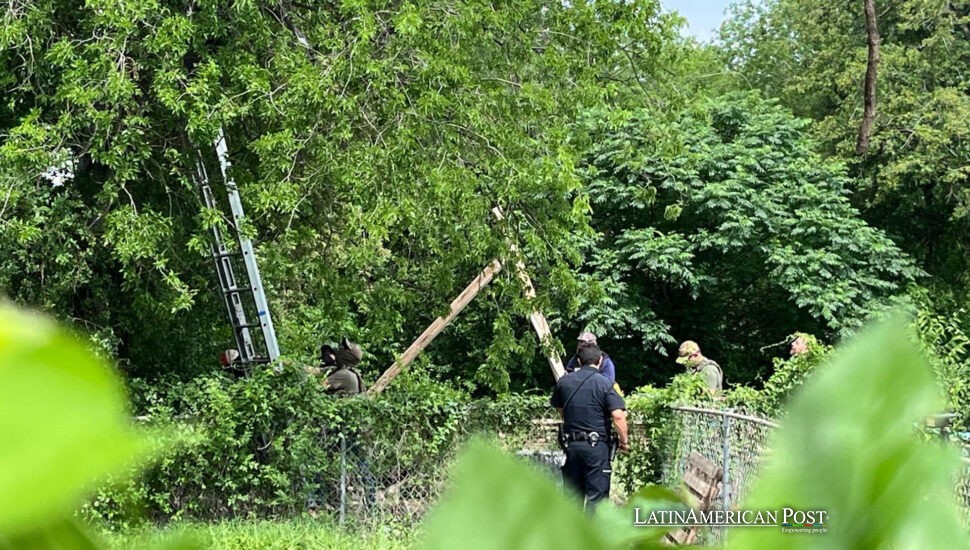Guatemalan Migrant’s Tree-Top Eight-Hour Defiance

A Guatemalan migrant in San Antonio spent eight harrowing hours perched in a tree, eluding immigration agents below. The drama captured local support and revealed the realities behind intensifying U.S. crackdowns as neighbors shouted words of solidarity from street corners.
An Eight-Hour Standoff in San Antonio
On a bright, tense day in San Antonio, Texas, the sight of a man gripping the branches of a tall tree drew curious onlookers and raised voices. Six Immigration and Customs Enforcement (ICE) agents, three wearing balaclavas, circled the base from mid-morning to early evening. The 29-year-old Guatemalan, identified as Raúl Ical, had climbed the tree around 10:00 local time (15:00 GMT), refusing to descend despite repeated attempts to coax him down. He finally surrendered after 7:00 p.m., at which point agents moved in for the arrest.
During those protracted hours, passersby offered support. Neighbors and strangers alike shouted, “You have rights!” urging Ical to hold on. Antonio Cruz, a local with Honduran heritage, decided to stand by: “Seeing him up there—who knows if he’s a father—broke my heart. Papers or not, everyone is human.” Cruz recounted an exchange where Ical, from atop the tree, yelled that he’d noticed officers “following” him on his way to a construction job.
After the standoff ended, Secretary of Homeland Security Kristi Noem told EFE that those without legal status “will be deported” and insisted ICE would remain vigilant. The national climate, shaped by President Donald Trump’s vows for mass removals, underscores how a single day’s incident can symbolically reflect an entire policy shift.
Heightened Deportation Pressures
This apprehension occurs amid escalating immigration policies. Trump’s administration touts a daily average of 650 arrests—double that of the previous leadership, according to the Migration Policy Institute. Yet many of the president’s promises, such as mass deportation sweeps, face logistical bottlenecks like limited personnel and space. Additionally, some measures run into judicial roadblocks.
Cruz expressed worry about a larger trend. He observes more frequent raids in areas that have mainly Latino residents. He hears accounts of immigrants, legal residents included, mistakenly taken into custody. Should people with documentation not take a stand, authorities will eventually target them, he cautioned. This declaration reveals a worry. Draconian enforcement separates families. It also grows distrust in communities.
Meanwhile, official data confirm the deportation of at least two minors who were U.S.-born. Such stories deepen skepticism about the system’s accuracy. Critics say ICE’s aggressive tactics push those facing arrest to desperate measures—like climbing a tree to avoid capture. Supporters of the crackdown argue it upholds the law, but for observers on the ground, the human cost is starkly visible.
Voices of Solidarity and Uncertainty
San Antonio Express-News documented that Ical had entered the U.S. without authorization at least twice. Federal charges may await him for reentry. The case shows how difficult it is to enforce migration rules. It shows the balance between law and immigrant fear. People in the area felt sorry for Ical. This indicates they disliked police action. A local woman shouted, “He is not a criminal.” Such words reflected a shared belief, that not all undocumented people pose a threat. That is a true statement.
The tension concluded when Ical descended, apprehended by ICE agents who had waited patiently through the Texas heat. Observers said the mood was subdued rather than triumphant—neighbors realized the man’s arrest likely meant a fast track to detention or deportation. The statement from Secretary Noem, “They run but they do not hide,” had an effect on critics who believe there is an unrelenting push to carry out removal orders, regardless of the situation.
Some see hints of compassion. Activists give legal advice. They mention that undocumented migrants possess constitutional rights to due process. Groups in the community give money. The money supports lawyers, housing, or assistance to prevent exploitation. This tension is between local sympathy and official crackdowns. It defines the situation now for undocumented Latinos within cities in the U.S. For many, Ical’s trouble is a demonstration of the severe actions at-risk people will take. They do it to stay in this country.
With the looming threat of mass enforcement, families weigh the risks of stepping out of their homes or traveling to work. The chilling effect can hamper everyday life—migrants may forgo medical care or schooling out of fear. Meanwhile, critics label such enforcement as extreme, especially in low-priority cases. Proponents counter that laws must be upheld uniformly. Either way, the raw scene of a man high in a tree, clinging for hours, suggests an unyielding standoff between personal desperation and state authority.
The day’s events likely fade quickly from national headlines, but for many in that community, it reinforced a sense of fragility. “We see this, and we can’t turn away,” Cruz said, summarizing the neighborhood’s reaction. “He was up there for hours, but maybe we can be the reason he believes people still care about him as a human being.” The tension underscores how each confrontation between ICE and migrants resonates profoundly in local communities—and beyond.
Also Read: Brazil Farewells Its Oldest Nun Cherishing Life and Soccer
For now, the fallout remains uncertain. Ical’s case will presumably run through the federal system, and he might face prolonged detention. Yet for residents who joined to watch or yell supportive phrases, the memory lingers of a life suspended in a tree as officers waited below. It’s a stark reminder that behind statistics and policy announcements, real individuals hazard everything for the chance of a better future—only to find themselves cornered by a system that few can fully navigate.




